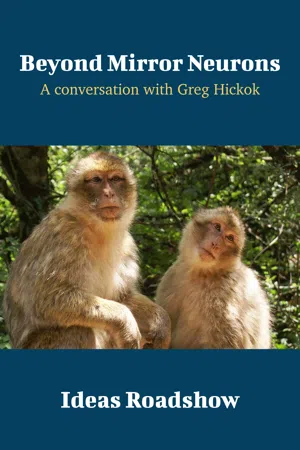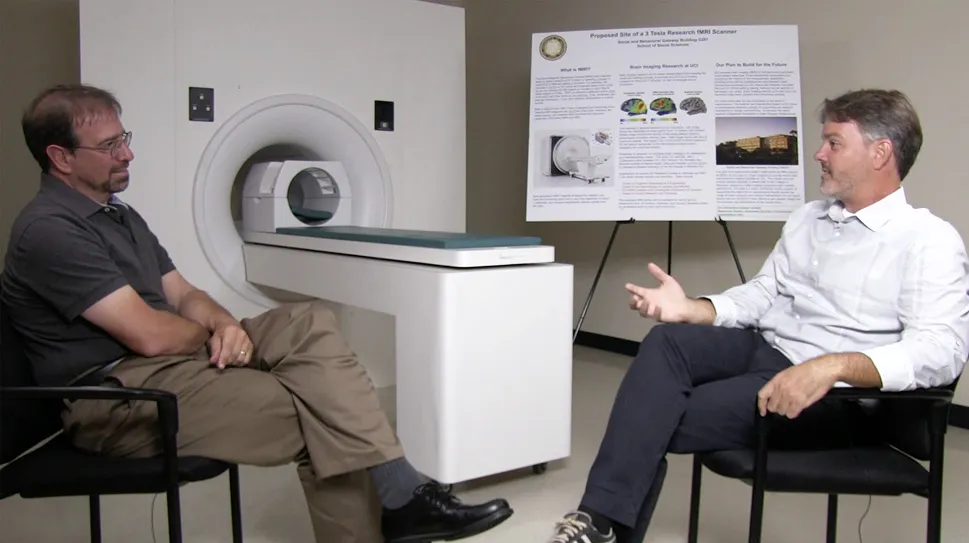![]()
The Conversation
![]()
I. Talking Neuroscience
Speech, language and cognition
HB: How did your interest in cognitive science begin?
GH: I always liked psychology and was constantly fascinated by the mind. Through most of high school and the majority of my undergraduate education, I thought that I was on a clinical psychology track, going to do counselling of some sort. But once I started taking more specialized courses, I realized that I was much more interested in the neuroscience side than the clinical side. I remember being very stimulated by Oliver Sachs’ book, The Man Who Mistook His Wife for a Hat. I was just fascinated by neurological disorders. I didn’t know exactly what I wanted to do, but I knew I wanted to do something with the brain.
I also got involved in some research at the undergraduate level and I really enjoyed that. So it was those two things: being interested in the brain and interested in doing research—creating something new, discovering something new. That was very exciting for me.
I applied to a wide variety of experimental psychology programs where there was an opportunity to do brain-related research. I happened to get into one program where they were doing language and brain work at Brandeis University, and that’s where I went—even though I wasn’t particularly captivated by language at the time.
HB: What were your preferences back then?
GH: Well, like a lot of undergraduates, I was excited by the visual stuff: visual illusions and various things like that. The language part never excited me. I was always bored in the language sections of the Intro Psych courses, because they would teach you what phonemes are, what morphemes are, what a sentence is; and that was just ridiculously boring for me.
But once I got into the program and started learning about language from a biological perspective, actually thinking of it in a different way, my interest grew. I started considering that language is essentially an adaptation of your brain that allows you to convert what you’re thinking into wiggles in your mouth that can be communicated and implanted into someone else—which is a very different way to think about language. It became a biological question; and framed in those terms, it’s much more interesting to me.
HB: I’ve talked to a fair number of people in the cognitive science field, and there seems to be this distinction—which is becoming, I suspect, ever blurrier—between those who say, “I’m a behavioural person,” and those who maintain, “I’m a biology person”. One indicator is that the biological guys will tend to use the word “mind” a lot, while the neuroscience guys will usually use “brain”.
Did you feel that distinction when you were an undergraduate or graduate student? Did you feel yourself drifting to one side or the other?
GH: Well, the distinction still exists. There are people who do cognitive science and study the mind and don’t care a lick about the brain: they explicitly say that it doesn’t matter at all. Then there are people from the neuroscience side who say that we don’t need to deal with cognitive theories or abstract constructs: all we really need is to dig into the neuroscience, and once we understand things at that level everything will be clear.
I’ve been exposed to both sides, and I find myself in the middle. I think that there are obvious benefits to both. It’s really a linking problem. The psychological theories that have been developed in language and other domains are a description of real data. There are empirical facts, and there are abstract theories. We’re not connecting it to neurons quite yet, but they are constructs that explain empirical data, just like in any science. And it’s doing some work.
Meanwhile, in neuroscience you have information about, or data about information about, how information flows in the brain: what neurons do, how networks behave, and things like that.
The really difficult thing is trying to connect those two levels. That’s where I see the most interesting direction for any of this sort of work.
HB: Are there increasing numbers of people trying to connect them? Or is the separation just growing wider?
GH: Well, the whole field of cognitive neuroscience, which is a relatively new term, is explicitly interested in connecting cognitive theories with the brain. But even within that you have people who value one sort of information over another in some cases.
A large number of people are explicitly trying to link cognitive theories with brain constructs. It was criticized quite a bit at the beginning, because it felt like neo-phrenology. People were doing these functional MRI experiments and pointing to areas that would activate while you were talking or thinking or doing whatever. They were calling it the speech area, the thinking area, or whatever.
Cognitive psychologists, rightly I think, criticized that work. Basically the critique was that just knowing where something happens in the brain doesn’t tell you how it happens. And that’s the critical question: how it happens. But as the field has matured, information about where things happen—what circuits are involved, what those circuits look like when we dig in a little bit more—is starting to inform cognitive theories quite a bit.
HB: As an outsider, it seems to me that an obvious difference between so-called neo-phrenology and old-fashioned phrenology is that now you actually have scientific devices that measure things, as opposed to some guy just feeling your head and guessing something about your character. I guess it’s not quite that way, because back then they had some information from lesions and so forth, but for the most part, as you say, the difference now is that we have all this data. You can start modelling things more concretely.
But I’ve personally encountered a few people of what I would call an old-fashioned behaviouralist perspective who tend to be quite negative towards those who rely upon these modern diagnostic techniques for many of the reasons that you’re saying, implying that, “Well, it’s all just collecting data basically. It’s not actually building theories.”
And it seems to me that, for the scientific enterprise to succeed, you need both.
GH: You do. The way I think about it is that when we first started doing brain-mapping with functional imaging, it was kind of like a big geography exercise: we’re just mapping the landscape—which is kind of boring in some ways.
HB: But necessary.
GH: But necessary, yes. Once we get a lay of the land then we can start doing the geology: understanding how these things come about and what the forces are behind it. We’re getting to the point where we’re starting to do some serious geology.
HB: Let’s get back to speech and language. You started off as a graduate student at Brandeis in speech and language, which was not an area of overwhelming desire for you at the very beginning. But then things started to change. What started getting you excited, and how did your research orientation develop from that point forwards?
GH: I actually started getting some education in formal linguistics and theoretical syntax, which—believe it or not—I found fascinating.
HB: Sure, I believe it. Why not?
GH: Well, a lot of people think, as I did when I first started, that formal linguistics is jus...

